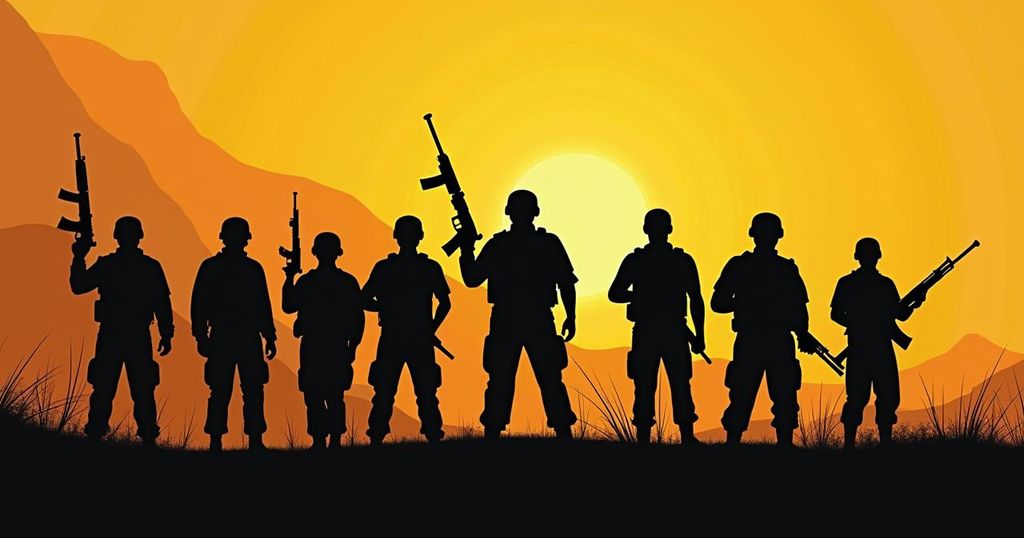Hezbollah, a Shiite militant group founded in the 1980s with Iranian support, has engaged in escalating conflict with Israel, marked by significant airstrikes and missile attacks. The recent violence has raised international concerns about potential broader implications, especially regarding Iran’s involvement.
Hezbollah, known as the “Party of God” in Arabic, is a prominent Shiite Muslim militant organization that emerged during Lebanon’s civil war in the 1980s, with support from Iran, aimed at resisting Israeli occupation in southern Lebanon, which concluded in 2000. Initially established as a military force to oppose Israel, Hezbollah has since evolved into a major political entity in Lebanon. Its influence has spread beyond its borders, involving military operations in Syria, Iraq, and Yemen, supported by a robust internal infrastructure that includes social service offices, communications networks, and internal security functions. The ongoing conflict has escalated significantly, with Hezbollah engaging in intense confrontations with the Israeli military for nearly a year. Recently, Israel executed airstrikes on over 1,000 locations across southern and eastern Lebanon, an operation that resulted in substantial casualties, including 558 dead and approximately 1,800 injured, marking one of the deadliest days for the nation since the cessation of its civil war in 1990. The airstrikes, which continued into subsequent days, have provoked a strong retaliatory response from Hezbollah, which has reportedly launched over 100 missiles, rockets, and drones towards Israel, though the majority were intercepted, with no serious injuries reported on the Israeli side. As international leaders convene at the United Nations General Assembly in New York, there is mounting concern regarding the potential for this conflict to escalate further, potentially drawing in powerful allies such as Iran. The situation remains volatile as negotiations and geopolitical dynamics shift rapidly.
Hezbollah’s origins trace back to the socio-political turmoil of Lebanon’s civil war, where it emerged as a resistance movement against Israeli forces. Over the decades, Hezbollah has transformed into one of the most significant political and military players in the Middle East, leveraging its roots in Shiite militancy and substantial financial backing from Iran. The ongoing skirmishes with Israel signal a deterioration of relations not only between these two entities but also a potential for broader regional conflict, particularly with the backdrop of international discussions aimed at de-escalation.
In summary, Hezbollah stands as a formidable militant and political organization whose conflict with Israel has intensified, particularly following recent Israeli airstrikes that resulted in significant Lebanese casualties. The situation remains precarious, with global leaders urging restraint to prevent a wider regional war that could involve major powers such as Iran. The dynamics of this confrontation highlight the complex nature of Middle Eastern geopolitics, where local conflicts can trigger international ramifications.
Original Source: www.nytimes.com






